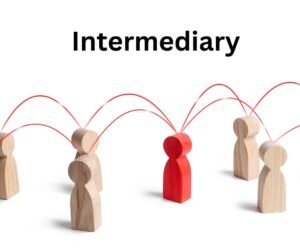GST: Professional Consultancy Services Provided to Overseas Entities Would Not Fall Under Intermediary Services-Refund Allowed

Recently, in the case of M/S ERNST AND YOUNG LIMITED Vs ADDITIONAL COMMISSIONER, CGST APPEALS-II, DELHI AND ANR. [W.P.(C) 8600/2022], the Hon’ble Delhi High Court conducted a detailed analysis of the definition of “intermediary”. Based on this analysis, the Hon’ble High Court held that the professional services provided by the Indian branch of E&Y to overseas entities of EY would not fall under the definition of “intermediary” services. Accordingly, the refund of GST Input Tax Credit shall be granted to EY (Indian branch).
The petitioner is an Indian Branch Office of M/s Ernst & Young Limited, a company incorporated under the laws of United Kingdom
E&Y Limited has entered into service agreements for providing professional consultancy service to various entities of Ernst & Young group (hereafter ‘EY Entities’) (like EY US, EY Australia etc.) on arm’s length basis.
In terms of the aforementioned service agreements, the overseas entities had retained E&Y Limited, acting through its Indian Branch (the petitioner herein) to provide certain professional services (the Services).
The petitioner had provided various professional services to overseas EY Entities in terms of the agreements entered into between E&Y Limited and the respective overseas EY Entities.
The petitioner applied for refund of the ITC availed for providing its professional services for the periods December 2017 to March 2020.
The Adjudicating Authority found that the petitioner was registered under the Act (GSTIN- 07AABCE9897M1ZR) and thus, was located in India. The Adjudicating Authority also, on the basis of the invoices raised by the petitioner, accepted that the recipients of services were located outside India. However, in so far as the place of supply of services is concerned, the Adjudicating Authority held that, in terms of Section 13(8)(b) of the Integrated Goods and Services Tax Act, 2017 (hereafter ‘the IGST Act’), the location of supply of intermediary services is the location of the supplier of those services. The Adjudicating Authority proceeded on the basis that the Services provided by the petitioner were intermediary services and since the petitioner was located in India, the place of supply of the Services was not the location of the recipients of the Services but the petitioner’s location in India.
The Adjudicating Authority also referred to the letter dated 04.04.2008 issued by the Reserve Bank of India granting Ernst & Young Limited the permission to establish a Branch Office in India and noted that the activities that could be carried out by the Branch Office in India included “representing the parent company in India and acting as buying/selling agent in India”.
In view of the above, the Adjudicating Authority held that the petitioner “is engaged in rendering professional or consultancy services, promoting technical or financial collaboration between Indian companies and parent or overseas group companies, representing the parent company in India and acting as buying/selling agent in India etc.”.
The Appellate Authority upheld the decision of the Adjudicating Authority that the services rendered by the petitioner were intermediary services. The Appellate Authority reasoned that the services provided were at the instance of foreign based entities but the same were not provided in their respective foreign territories. Therefore, it could be construed that the subject services were provided in India.
Hon’ble Delhi High Court analysed the definition of ‘Intermediary’ given under sub-section (13) of section 2 of the Integrated Goods and Services Tax Act, 2017 (hereinafter referred to as “IGST” Act) which is given hereunder:
‘Intermediary means a broker, an agent or any other person, by whatever name called, who arranges or facilitates the supply of goods or services or both, or securities, between two or more persons, but does not include a person who supplies such goods or services or both or securities on his own account.”
It was observed by the hon’ble court that the last limb of Section 2(13) of the IGST Act reads as “but does not include a person who supplies such goods or services or both or securities on his own account” but this does not control the definition of the term ‘intermediary’; it merely restricts the main definition. The opening lines of Section 2(13) of the IGST Act expressly provides that an intermediary means a broker, agent or any other person who “arranges or facilitates supply of goods or services or both or securities between two or more persons”. The last line of the definition merely clarifies that the definition is not to be read in an expansive manner and would not include a person who supplies goods, services or securities on his own account. There may be services, which may entail outsourcing some constituent part to a third party. But that would not be construed as intermediary services, if the service provider provides services to the recipient on his own account as opposed to merely putting the third party directly in touch with the service recipient and arranging for the supply of goods or services.
Thus, even if it is accepted that the petitioner has rendered services on behalf of a third party, the same would not result in the petitioner falling within the definition of ‘intermediary’ under Section 2(13) of the IGST Act as it is the actual supplier of the professional services and has not arranged or facilitated the supply from any third party.
Finally, on the basis of above observation, the Hon’ble court concluded that there is no dispute that the recipient of Services, i.e. EY Entities are located outside India. Thus, indisputably, the Services provided by the petitioner would fall within the scope of the definition of the term ‘export of service’ under Section 2(6) of the IGST Act”, consequently allowing the GST Input Tax Credit refund claim.
